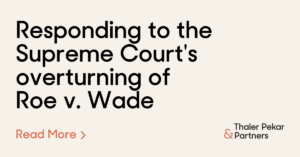4 min read
The Problem of “I” and the Powers of “We”

As leaders, we constantly use pronouns — let’s use them to our advantage.
Leaders often use first-person pronouns to state their role on a team or their status in an organization:
“I take full responsibility.”
“The buck stops with me.”
Yet in some contexts, using first-person pronouns can communicate defensiveness and a loss of status. It can undermine confidence and leadership.
For example, Aaron*, a C-suite executive I advise, was recently cornered by a difficult colleague into defending his position on a major initiative. The conversation took place in front of senior leaders. In response to a battery of questions, Aaron reverted to using the “I” and “me” pronouns. In his hierarchical institution, he risked losing status for his team, himself, and their strategy.
Misuse of pronouns is often at the core of my clients’ communication challenges. This has prompted me to re-read The Secret Life of Pronouns: What Our Words Say About Us, by James W. Pennebaker. Pennebaker conducts large-scale computerized text analyses of conversational transcripts, correspondence, and political speeches, among other discourse, to learn the subtle ways in which specific parts of our language influence meaning.
Pennebaker observes, “Although the existence of social hierarchies may go against our beliefs in democracy and equality, the fast and efficient ways we create pecking orders helps to make all subsequent interactions run more smoothly.”
He further explains that “status is quickly signaled by the use of pronouns – especially first- and second-person pronouns such as I, we, and you. Contrary to what most people think, high-status people tend to use we and you at high rates compared to lower-status individuals. And low-status individuals overuse I.” Words reflect your leadership role.
I coached Aaron to discuss his team’s work using the collective “we” and “us” pronouns going forward. “We” enables him to speak with confidence and power: he is representing a team – and a solid, strategic vision. As a senior leader, Aaron’s language must consistently reflect his influence and outline his vision. People throughout the enterprise are looking to him for guidance — and assessing him. Aaron is now aware of his use of “we” and “us” and better able to claim and keep confidence in his team and a focus on their work.
Isabella, another client, was recently let go from a leadership role after a long tenure. Though she had immediately landed a more senior position at a different organization, Isabella felt defensive about having been fired and struggled with how to communicate the change to her team, mentees, and clients, many of whom she saw daily. Isabella reached out to me with her initial draft email. In it, she had instinctively talked about her work and her departure using the pronoun “I,” inadvertently leaving an impression of devaluing the relationships that had fueled her career trajectory and enabled her to move quickly into her new position.
Together, we worked to shift her statements from, for example, “I am so proud of my work with XYZ” to “We did extraordinary work together at XYZ.” We changed “I am no longer working with XYZ” to “XYZ has chosen to…”. By using “we” pronouns, Isabella is able to assert her status and agency and left her former associates and colleagues with a positive impression of her time working with them.
A final example, this one on how leaders should be aware of the pronouns they use when speaking of their successes: yesterday, I worked with a client, Kris, to refine the story of a presentation they recently gave to great acclaim. They’ll be sharing the story at a board meeting to members who benefit from hearing a story that evokes pride and inspiration and lends itself to repetition.
Kris would be correct in using “I” to report the story of the presentation’s success. After all, it was solely Kris who gave the presentation. But Kris’ presentation was about all their institution values. It was about all the board supports and values. Kris can elevate the substance and impact of their story by speaking of “we”. “We” shows Kris as a leader and invites board members to share in the success and readily repeat the story.
As a leader, you impact more than yourself. Your vision is bigger than yourself. Claim it through your language. Using “we” will let you share your passion. “We” will invite your listeners to be part of your vision and success.
*All client names have been changed.







